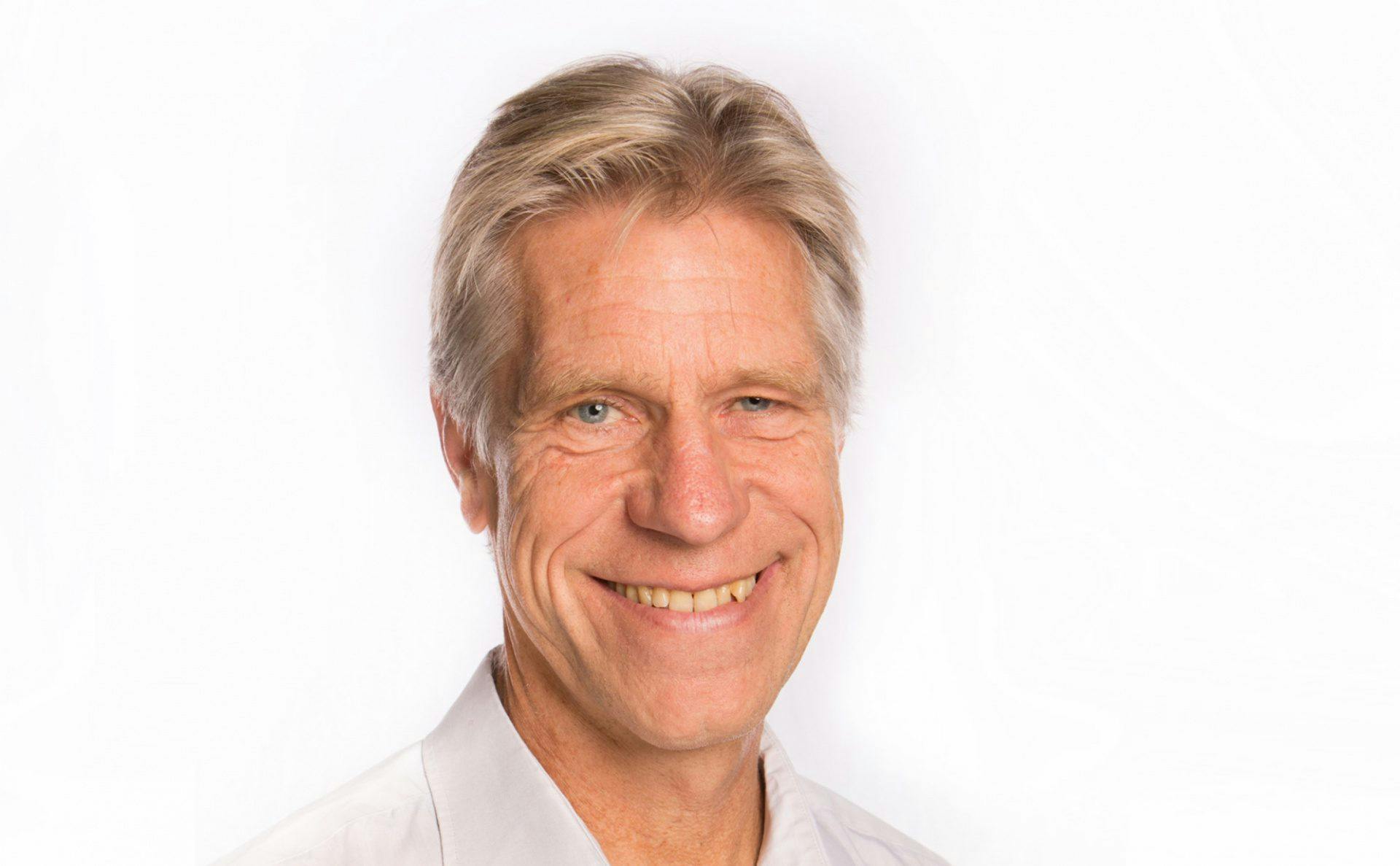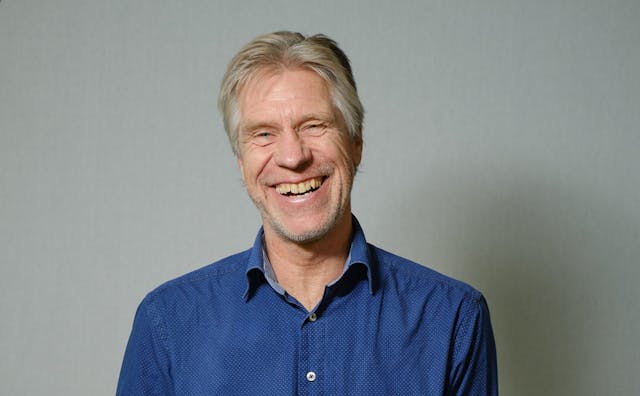A crowbar to pry open healthcare and fight inefficiency
Professor Ger Koole teaches Business Analytics and Optimization at VU Amsterdam and researches optimization and machine learning in fields such as healthcare, combining mathematical techniques with domain knowledge. “Dealing with fluctuations, margins of error and their real-world impact on services: that’s what I do and love. I mainly work in planning, matching demand and supply, but it takes more than technical know-how alone.” AI systems are set to play a much more important role in healthcare, Koole expects.
Interview with Ger Koole, Professor Business Analytics and Optimization at Vrije University

Healthcare isn’t Ger Koole’s only playing field. In fact, he works in many different sectors: “I spend four days a week at VU Amsterdam and run my own call center optimization company one day a week (CCMath). There are clear similarities and differences between hospitals and call centers. Although call centers are notoriously seen as ‘21st-century sweatshops’, they’re better at matching supply and demand than healthcare institutions, and they’ve got more resources to boot. In healthcare, this inability leads to unequal distribution of work among healthcare professionals, as well as dealing a significant blow to efficiency. And in a tight market with rapidly rising costs, the main thing you want to do is make optimal use of your resources, while striking a balance with employee satisfaction.”
Making care more efficient
According to Koole, his field could help relax today’s tight labor market, even in healthcare: “Improved matching theoretically allows for improved deployment. If you find yourself alternating between a sprint or a standstill, you’re not planning things right. Smart planning results in satisfied employees, satisfied customers and lower costs. Smart planning hasn’t gotten off to a flying start in healthcare, due in part to doctors’ need for autonomy. When you get down to the brass tacks, call center employees and doctors are both production workers. One may usually be more highly educated than the other, but productivity is key for both. There are clear differences, of course. Doctors enjoy a large degree of autonomy and can choose how to spend their time at work. Lack of competition is also factor, as healthcare is not a fully commercial market. Financial incentives will have to get the ball rolling at some point.” That, Koole believes, is an issue for politicians. Still, he believes that healthcare can be made much more efficient, provided certain conditions are met. “I expect that doctors will be the main stumbling block. Many of them will have to sacrifice autonomy: they’ll have to work harder and will have less control over their schedule. Several health facilities have already adopted ORTEC Workforce Scheduling, with only doctors holding out. When hospital beds are scarce, as they are in the Netherlands, hospitals have to plan. But for sound planning, you need degrees of freedom: there has to be something to optimize. Just the other day, a planner told me: ‘For me, the biggest impact on the hospital would come from being able to schedule surgeons too.’ In the current situation, the OR schedule is usually set in stone. If there are orthopedic surgeries scheduled for Monday, the ward would be full on Monday, Tuesday and Wednesday, and empty afterwards. You should really be able to shift surgeries around. Having an OR complex is expensive, so ideally cost control would be a major concern in the choices you make. The politics of it all can be very frustrating. Everyone was delighted that the new Minister of Health is a doctor, but I don't know whether that's such a good idea. Perhaps a heavyweight from outside the industry would have been better. And the same goes for hospital boards.”

"The OR schedule is usually set in stone. If there are orthopedic surgeries scheduled for Monday, the ward would be full on Monday, Tuesday and Wednesday, and empty afterwards. You should really be able to shift surgeries around."
The big picture
In 2020, during the second corona wave, Koole was approached by the LCPS (National Coordination Center for Patient Distribution, ed.), which was run by Ernst Kuipers at the time, before he was made Minister of Health. Together with a colleague from the VU and a colleague from Groningen, he designed a prediction model for bed occupancy by healthcare region. Based on this model, hospital patients with Covid-19, both in the ICU and in the clinic, were moved as needed. “It’s a mathematically sound model that uses statistics and queuing theory," Koole explains, "that calculates expected bed occupancy over a week by region. Doctors are not at all used to working with these models, and although hospitals had already adopted integrated capacity management, the pandemic prompted many of them to take a closer look at predictive planning. The corona pandemic has also caused a lot of care to be delayed, leading to excess mortality. During the crisis, Covid patients admitted to a Dutch ICU could be transferred to Germany. Having a patient spend two weeks on the ICU there instead of here would have allowed us to perform seven more open-heart surgeries. ICU doctors, however, advised against it, arguing that moving patients would be detrimental to their condition. For me, that’s a failure to see the big picture. Mathematicians would call it a ‘sub-optimization’. As luck would have it, some of the care provided appeared to have little added benefit, because although lives were lost as a result of delayed healthcare, only a relatively small number of people died. In terms of bed occupancy, the Dutch healthcare sector has become rather efficient. Even still, Corona was a stern test and unfortunately we were found lacking. We lack flexibility, leadership, and most importantly, staff."

"In my view, 24/7 healthcare is the future. People will Google their symptoms first and only get in touch with a healthcare professional when there’s a clear reason to do so."
Innovations from outside the market
Whether you’re talking about baggage handlers at Schiphol Airport or nursing staff, economists who think salary is determined by supply and demand are wrong, Koole argues. "The wage gap in healthcare is huge. The book "The Future of the Professions" outlines how doctors will see their job description change. Automation and AI will eliminate certain tasks or allow a doctor to diagnose patients a lot faster thanks to technology. Doctors will have less to do, might start to stress the communicative element of consultations, and won't need to know weighty tomes of medical diagnoses by heart. And it's become impossible to keep track of every single medical development. The same is true of our field: AI systems are developing and will soon be able to play a meaningful role in the healthcare sector. Not a day goes by without a newspaper warning us that Emergency Rooms and General Practices are overcrowded. In my view, 24/7 healthcare is the future. People will Google their symptoms first and only get in touch with a healthcare professional when there’s a clear reason to do so. What’s more, consultations don’t always have to be live. Not having to take a half day off work to have your arm looked at will benefit patients, too. Switzerland has already introduced 24/7 online GP surgeries, staffed by call center workers, nurses and doctors." Koole doubts whether a similar system will emerge in the Netherlands in the short term, but he’s convinced that it will happen eventually: "Here, healthcare is all buttoned up. Even algorithms are considered a medical device. It goes without saying that AI has to be used responsibly, but there’s no denying that the healthcare sector has to be pried open. If doctors don’t do it, patients will. Consultations are already wildly different than they were a decade ago. We need a crowbar to pry open healthcare and eliminate inefficiency, and it’s not uncommon for innovations to emerge from outside markets.”
About Ger Koole
Ger Koole is professor of mathematics at VU University Amsterdam and teaches Business Analytics and Optimization to various groups of students. Koole’s research is centered around the use of Optimization and Machine Learning for Service Operations, especially call centers, healthcare and revenue management.
Apart from his academic work, Koole is also an entrepreneur, specializing in Operations Management and Business Analytics. In late 2020, during the second Covid wave, he assisted the LCPS, the Dutch center charged with distributing Covid-19 patients, in calculating the best way to divide patients across the available beds in ICUs and clinics. Koole co-founded CCmath, a call center workforce optimization company, as well as Adscience, a company that focuses on internet advertisement optimization.